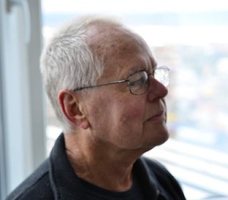
In our fast moving, acquisitive society, action rules. “Don’t just stand there, do something!!!” If we’re not doing something, anything, then we are likely to complain of being bored. That action is good and being passive is bad is a transparency for most of us - a given, an obvious truth - but is it?
Lao Tzu wrote 2 millennia ago about returning to the uncorked block, about sitting observing the way the universe flows first this way, then that. When I first heard Otis Redding singing “Sittin' on the dock of the bay” it was like a foreign language to me. “Sitting on the dock of the bay, wasting time”! Wastin’ time? You’ve got to be joking.
Erickson was unusual in how he invited small rather than massive transformational changes. I like the way that this lessens the fear which can interfere with any change, and allow the change to begin slowly, build slowly and consolidate slowly. This takes the pressure off us, and the client.
People at the Mental Research Institute in Palo Alto have taken this principle and expanded it. Their mantra is don’t change, and if you have to, change as little, and as slowly as possible. Applying constraints is their approach to all human dilemmas which they define as resulting from our attempt to solve them. Instead of doing more of what hasn’t worked, they encourage doing nothing, being passive, and waiting.
In the movie “Eat Pray Love” an Italian man comments to Julia Roberts “You Americans know about entertainment, but you don’t know a bout pleasure - dolce fa niente”
I love the mood of the Zen saying “Sitting quietly, doing nothing, spring comes and the grass grows deep in the forrest” which echo’s Lao Tzu’s “Tao in the world is like a river flowing home to the sea”.
Who was it that said “Wasted time that is enjoyable isn’t wasted time.”?
When was the last time you did nothing?
If you’re interested, try it out and see what happens spontaneously.

I love the mood of the Zen saying too.